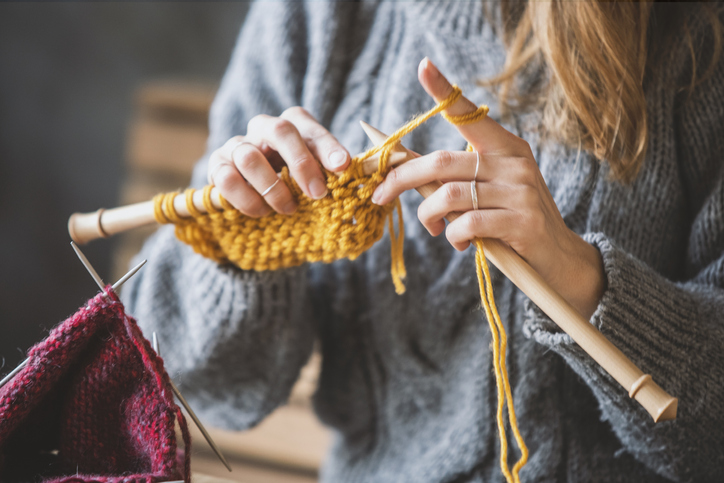“Creativity is the ability to look at the ordinary and see the extraordinary.” ~ Dewitt Jones
Recovery is a time of new beginnings. As you break free from the burden of substance abuse, the world around you will start to seem more vibrant and full of possibilities. Take advantage of your newfound freedom by exploring your creative side.
Painting, drawing, writing, dancing, making music and other creative activities provide a therapeutic outlet for self-expression, mindfulness, and personal growth. Even if you never thought of yourself as a “creative” person in the past, now is the perfect time to tap into your creativity and share your unique perspective with the world.
How Creativity Helps Support Your Mental Health
The National Alliance on Mental Illness (NAMI) reports that more than 20% of adults in the United States struggle with mental illness each year, with 3.8% of adults in the U.S. experiencing both a mental illness and co-occurring substance use disorder. If you’re one of the millions of people with a dual diagnosis, here are some of the many ways making time for creative pursuits can help you more effectively manage your mental health:
- Providing an outlet for expressing your emotions. Many people in recovery facing mental health issues find it challenging to express their feelings through conventional means. Engaging in creative activities can provide an avenue to channel and release these emotions constructively.
- Serving as a healthy coping mechanism. If you relied on drugs and alcohol to help you cope with stress, anxiety, or depression, turning to creative pursuits can offer a healthier alternative.
- Allowing for self-exploration. Through your creations, you may uncover aspects of yourself you hadn’t previously acknowledged, leading to a deeper understanding of your identity and fostering a stronger connection with your inner self.
- Enhancing resilience. Painting, writing, making music, or engaging in other creative endeavors can build resilience by promoting problem-solving skills, adaptability, the ability to view challenges from different perspectives, and a growth mindset.
- Encouraging mindfulness. When you immerse yourself in creative activities, your focus becomes fully attuned to the present moment. This state of “flow” offers respite from negative thoughts and cravings, granting a sense of peace and serenity.
- Healing from past trauma. Creative expression can lead to a sense of catharsis, enabling you to confront and process unresolved traumas that may have contributed to the development of your substance use disorder.
- Expanding your social circle. There’s nothing wrong with enjoying creative pursuits alone, but participating in creative communities or collaborations can foster a sense of belonging and social connection that benefits your mental health in recovery.
- Breaking stigma. Artists and creators who openly share their struggles through their work can help break down the stigma associated with mental health issues. This can help you feel more accepted as you continue to move forward in your recovery while encouraging others around you who are also struggling to get the help they need.
Creativity as a Daily Practice
To fully harness the potential of creativity to support your mental health, you need to make it an integral part of your life. Here are some tips to help you make creativity a routine part of your recovery journey:
- Schedule time for creative hobbies. Dedicate a specific time each day or week to engage in creative activities. Treat this as an appointment for self-care.
- Create a functional workspace. Designate an area where you can freely express yourself without any inhibitions. This safe space will allow you to immerse yourself fully in the creative process.
- Start small. If you’re new to creative activities, start with small projects. Drawing for 10 minutes or jotting down thoughts in a journal can be a great beginning.
- Try new forms of self-expression. Experiment with various creative outlets to discover what resonates with you most. Whether it’s painting, writing poetry, or playing an instrument, explore different mediums to find your passion.
- Sign up for workshops. Look for local community centers or online groups that offer art or writing workshops. These spaces can be nurturing environments to share experiences and grow together.
- Keep a journal. Start a journal where you document your progress, challenges, and insights throughout your recovery journey. This process can offer a glimpse of your growth over time.
- Celebrate the process. In the world of creativity, the process is just as important as the result. Embrace the imperfections, as they are a part of your unique artistic expression.
We’re Here for You
At St. Joseph Institute, we take a holistic approach to addiction treatment—encouraging our clients to pursue their creative passions as a way to support a lasting recovery. Contact our admissions representatives today to learn more about the services offered at our Pennsylvania residential addiction treatment center.



